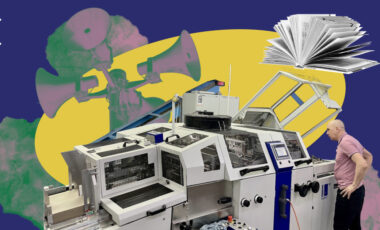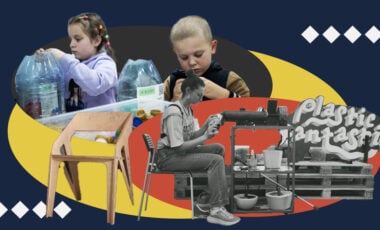The impact of artificial intelligence on the global translation industry

The global translation services market will grow by 6.7% annually between 2021 and 2027, according to an analysis by Report Ocean. According to Statista, in 2022 the global market for translation services will reach more than $57 million dollars. According to analysts, such growth is caused by increasing demand, globalization of the economy and technological progress. The latter, in turn, has led to the transformation of dictionaries into convenient gadgets and software with artificial intelligence (AI).
The translation industry has played an important role in the globalization of the economy. The success of both an individual business and the diplomacy of the entire country may depend on communication and understanding. The development of fast, high-quality and mobile translation is being stimulated by AI systems capable of ensuring human parity. AI is constantly evolving and, according to experts from Yale and Oxford universities, will surpass humans by 2062 with a probability of 50%. The development of AI software also plays an important role in this. According to Statista, in 2021 the global market for artificial intelligence software grew by 54%. In addition, the scale of this technology is so large that its market size will reach $22.6 billion in 2019-2025.
With the development of AI, effective devices and programs have emerged that facilitate human communication while preserving the world's linguistic diversity.
For example, AI allows Google Translator to translate entire sentences, which allows you to take into account the context of the words used in it. In 2018, Google launched an offline translation based on artificial intelligence for Android and iOS. Technology has made translations from 59 languages more accurate and closer to human language.
Google Lens image recognition technology with the help of AI allows you to see the direct translation of foreign words through the smartphone camera.
Modern translation technologies have also affected video. The simplest innovation for translations implemented by AI is automatic subtitle translation.
In addition, AI software already allows automatic online video translation. This technology enables bloggers, the media, international companies and educational organizations to scale their content and business around the world. Such programs differ from traditional translation agencies by very important factors for the modern world—speed and mobility. For example, the average speed of the online video translator Vidby, launched in Switzerland in 2021, is 1-2 minutes per 1 minute of the source file. To start translating via this service one doesn't need to email or call as it happens while ordering traditional translations, and it takes less than a minute to order a translation. At the same time, the Vidby service offers customers high-quality translation of video content with simultaneous dubbing in any of the 70 languages. The accuracy in video translation thanks to AI is up to 80%, while it is 99% with post-editing within 24 hours after the automatic translation. At the same time, translation and voice dubbing remain fully automatic and highly accurate thanks to special algorithms for translation quality control. Interestingly, the company is now researching how to accurately recognize emotions, as well as recognize people's age through voice analysis. By the way, Swiss-Ukrainian Vidby has a rich background, as its founder Oleksandr Konovalov launched the world's first video call service with simultaneous audio translation into 44 languages called Droid Translator back in 2013, which has now, actually, turned into Vidby video translation.
Such services are especially relevant for international companies, where everyone should understand each other and work with relevant information. So now the world's largest companies are using video translation technology to improve understanding with both foreign clients and colleagues. In this context, the pandemic period was significant, when in fact the only tool for uniting business teams from different regions was video communication. For example, the Zoom platform was crowded with new users from different countries. With this in mind, Zoom in 2021 acquired the German developer of instant real-time language translation Kites. Their project is currently under development.
AI is a truly powerful technology that is constantly evolving and transforming the translation industry. However, 43% of respondents to the European Commission, the Institute of Linguists and the Institute of Translation (UK) disagree that the development of technology will make human translation less important in the future.





















































